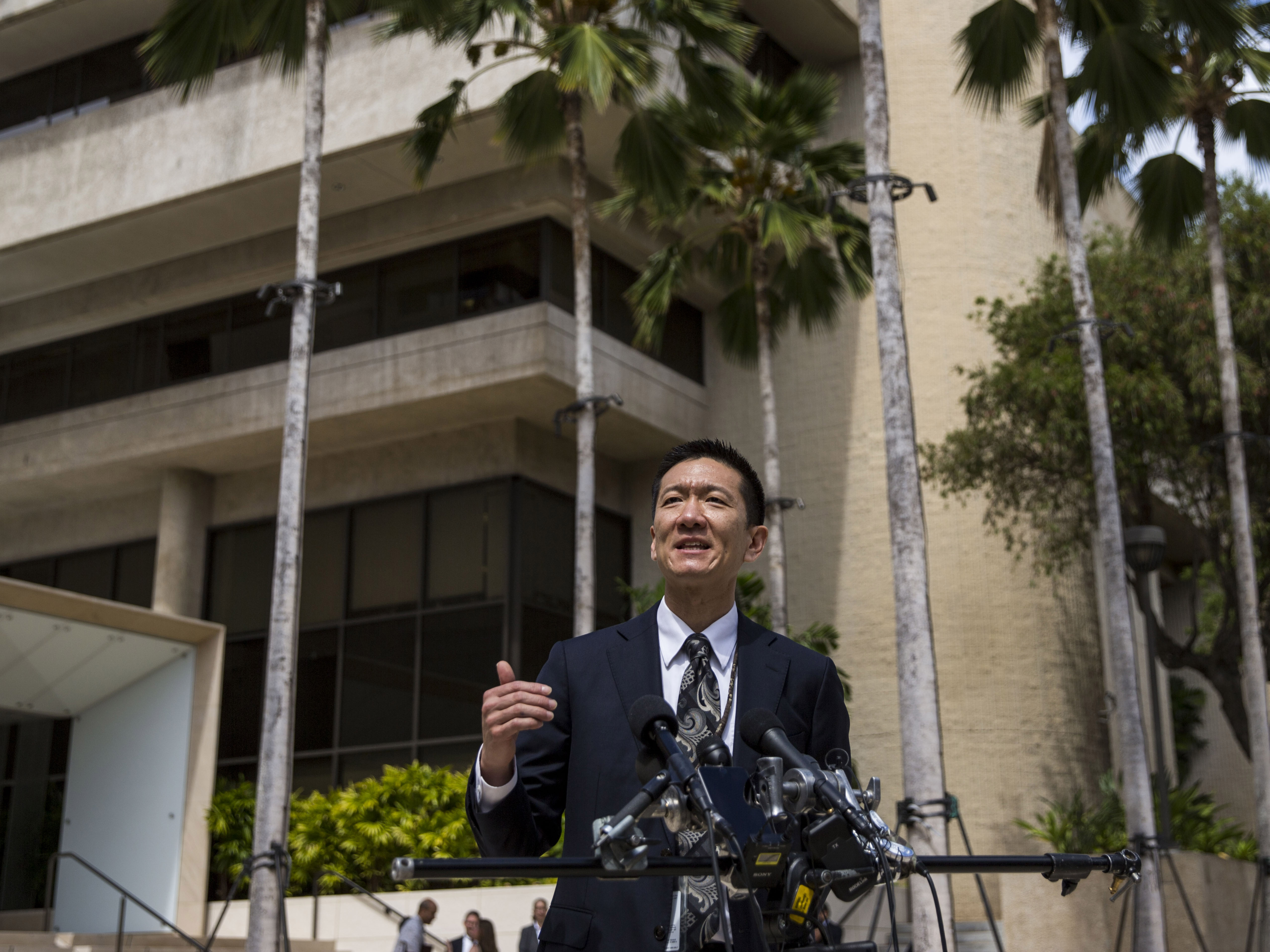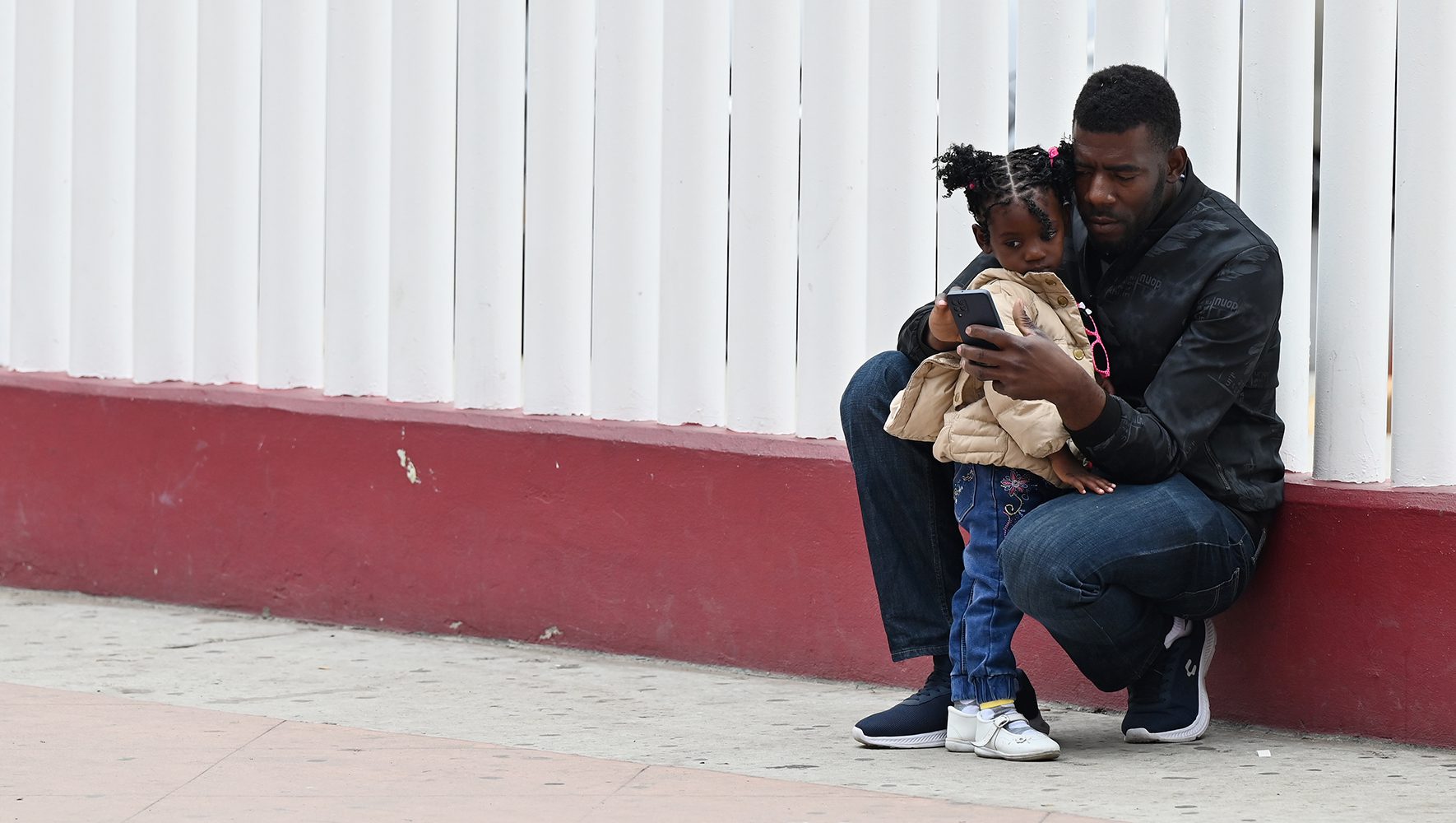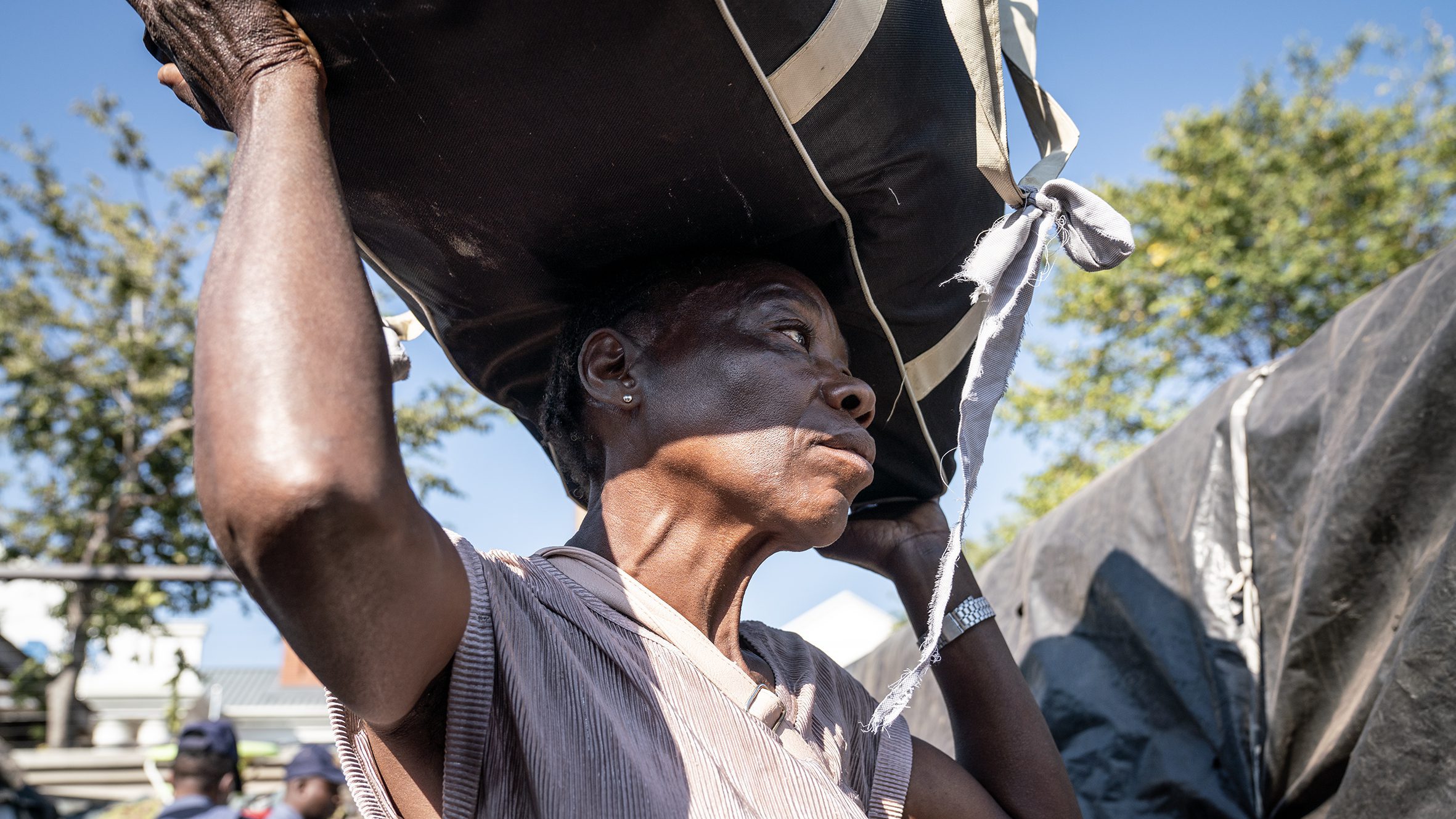Court Extends Hold on Trump Refugee Ban
By Rachel Nusbaum, HIAS.org
Mar 30, 2017

Hawaii State Attorney General Douglas Chin speaks at a press conference in front of the Prince Jonah Kuhio Federal Building and US District Courthouse on March 15, 2017 in Honolulu, Hawaii. Attorneys for the state of Hawaii filed a lawsuit to stop President Donald Trump's revised travel ban.
(KENT NISHIMURA/AFP/Getty Images)
Late Wednesday evening, the U.S. District Court in Hawaii issued a ruling converting its temporary restraining order on the Trump Administration’s refugee and Muslim ban to a preliminary injunction, a victory for the many groups challenging the ban’s constitutionality and seeking to prevent harms that might be caused by its implementation.
BREAKING: US judge in Hawaii extends order blocking President Donald Trump's travel ban until state's lawsuit is resolved.
— The Associated Press (@AP) March 30, 2017
“While it may sound technical, this is actually an important win for refugees and for all those who advocate for their protection,” said HIAS Managing Attorney Liz Sweet.
“This injunction will stand until an appeals court reverses the decision or the same court in Hawaii resolves the case on the underlying merits, which might take a while. It’s a relief to know that in the meantime, vulnerable refugees and their families will not have to suffer the impacts of this unconstitutional order, which we fully expect will be rejected by the courts once they consider the merits of the case,” Sweet added.
The March 29th ruling will allow the refugee resettlement program to continue functioning at the original admissions number set by President Obama, which is important for two reasons.
First, a reduction in the total number of refugees resettled this year from 110,000 to 50,000—like the one proposed by the Trump Administration in its executive order—would be devastating for the thousands of vulnerable refugees who would otherwise find safety and freedom in the U.S.
Second, the government agency charged with approving travel for admitted refugees calculates the number of weekly arrivals based on the total number determined by the president for the fiscal year.
Thus, even after the initial January 27 executive order was held up in the courts, families all over the world were still left in limbo because the reduction in the admissions total was still cut by more than half.
The Hawaii ruling’s affirmation of the refugee admission ceiling at 110,000 for this fiscal year, at least for the time being, is a huge development for the already vetted and cleared refugees who were just waiting on travel.
“This ruling provides an important measure of assurance to vulnerable refugees. Thanks to the court’s injunction, individuals seeking safety will continue to find welcome here, rather than being singled out based on wild generalizations about their faith,” said HIAS President and CEO Mark Hetfield.
The challenges to this order, including both the Hawaii case and our own challenge in Maryland, focus in part on the religious discrimination at the heart of this order. As Judge Watson writes in his decision:
Where the “historical context and ‘the specific sequence of events leading up to’” the adoption of the challenged Executive Order are as full of religious animus, invective, and obvious pretext as is the record here, it is no wonder that the Government urges the Court to altogether ignore that history and context. The Court, however, declines to do so. The Court will not crawl into a corner, pull the shutters closed, and pretend it has not seen what it has.
Based upon the preliminary record available… one cannot conclude that the actions taken during the interval between revoked Executive Order No. 13,769 and the new Executive Order represent “genuine changes in constitutionally significant conditions.”
Upon careful consideration of the totality of the circumstances… the Court reaffirms its prior finding that the balance of equities and public interest weigh in favor of maintaining the status quo.
…The requested nationwide relief is appropriate in light of the likelihood of success on Plaintiffs’ Establishment Clause claim.
HIAS had filed an amicus brief in support of this motion just days before the ruling. In the brief, drafted by lawyers at Dechert LLP, HIAS argues that “the opaque implementation of the [executive o]rder has caused confusion and extreme, dire consequences for HIAS’s refugee clients.” Further, “its terms profoundly offend this country’s fundamental commitments under national and international law.”
“To qualify as a refugee and resettle in the United States,” the brief notes, “a refugee must navigate a labyrinth of processes and investigations designed precisely to protect national security interests while assessing the refugee’s entitlement to status and resettlement. According to the U.S. State Department, refugees undergo the ‘most intensive security screening of any traveler to the United States’.”
All this, the brief notes, “does not convey a fraction of the uncertainty and fear refugees endure during the months and years that the process typically takes.”
With last night’s ruling, a small fraction of that uncertainty has been put on hold, and the lifesaving work of the U.S. refugee resettlement program can continue unhindered while the courts continue to review the constitutionality of the executive order.
That’s very good news.
To read more about HIAS' efforts to challenge the legality of the executive order, visit hias.org/litigation.





